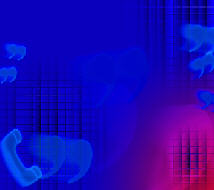



|
|
|
Scotland's very own ISP |
|
So here is what happened in Parliament: |
|
The Presiding Officer Sir David Steel opened by saying: “I call Kenny MacAskill.” At this point many of the MSPs shouted "Oh." |
|
Mr Kenny MacAskill (Lothians) (SNP ): then said “ In view of the Pavlovian response, I assure the chamber that I am simply keeping the seat warm for John Swinney until next Thursday a bit like the way in which the First Minister is keeping his seat warm for John Swinney until May” |
|
SNIPPETS by McFinnie |
|
WARM SEATS |
|
Just a bit of background. The SNP leader was away at his party conference in Inverness at question time. What is also significant is that the Scottish Parliament holds its elections early next year, that is 2003. |
|
Some are more equal than others - Full story |
|
Dennis Canavan (Falkirk West): said “On a point of order, Presiding Officer. Standing orders state clearly that the Presiding Officer should treat all members of Parliament equally, but the standing orders seem to be regularly ignored during First Minister's question time”. |
|
“Invariably, John Swinney (SNP Leader) is number 1 and David McLetchie (Conservative Party Leader) is number 2. They usually take up at least half or more than half of the time allocated for First Minister's question time. Today, John Swinney was not here and I noticed that the substitute, number 3 from the SNP benches, was put into the number 1 position. I also note that earlier the Presiding Officer chose Phil Gallie (Conservative) to ask a supplementary question despite the fact that the member was not even in the chamber to ask the question that he had lodged-indeed, he withdrew his question. What is going on?” |
|
The Presiding Officer (Sir David Steel) replied “On the second point, I properly called Mr Gallie on an earlier question. He sent me a note explaining why he was withdrawing a later one. I do not have foresight; I was not to know that he was not going to be here later. |
|
Consider question time structure |
|
However, his question was perfectly valid. On the more general question, it is for the chamber to consider, as we move towards the end of this session of Parliament, whether the existing question time structure is a good one. |
|
Surprised |
|
However, the structure has been operating for three and a half years and I am surprised that Mr Canavan has just discovered that questions 1 and 2 are usually given to the leaders of the Opposition parties. That is the agreement. |
|
I think that the leaders of the Opposition parties will not mind my saying that I have implored them on many occasions to keep their questions short to allow plenty of time for others to get in. In fact, we did well today. Not everyone was called, but nearly everyone who asked was called . |
|
That is my answer at the moment. However, the structure of question time is a matter for the chamber to consider. I have views on how question time might be improved.” |
|
Dennis Canavan added: With respect, Presiding Officer, it is not a matter for the chamber at this particular time. It is a matter for you to abide by the standing orders that have been agreed by the Parliament. The standing orders state clearly that you should treat all members equally. |
|
Then Sir David Steel countered “That is true, but there is a well-known saying that, although everyone is equal, some are more equal than others. |
|
Always the case |
|
That has always been the case with party leaders, as Mr Canavan knows from his previous incarnation as well as his present one. I am quite open to suggestions for change, but that is the system that we have used and I am not proposing to change it.” |